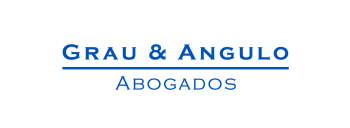On December 20 2016 Barcelona Commercial Court 4 dismissed a preliminary injunction motion filed by medac against Accord in a patent case regarding a particular formulation of the active ingredient methotrexate.
The German company medac is the holder of European Patent 2046332 (EP'332), entitled Concentrated Methotrexate Solutions. The patent was filed on July 20 2007 with a priority date of July 21 2006.
The EP'332 patent explains that:
- subcutaneous injections of methotrexate with different concentrations of up to 25 milligrams per millilitre (mg/ml) are used in the prior art for the treatment of autoimmune diseases; and
- these injections cause pain in patients due to the large volume of liquid that must be administered under the skin.
The patent aims to solve this problem by increasing the concentration of methotrexate to 50mg/ml in order to reduce the volume of the injection.
The patent's claims protect methotrexate for subcutaneous administration with a concentration of 50mg/ml for the treatment of inflammatory autoimmune diseases. This formulation is marketed by medac under the trademark METOJECT.
On July 26 2016 medac filed a preliminary injunction motion against Accord for alleged infringement of the EP'332 patent by way of the imminent commercialisation of pre-filled syringes of methotrexate with a concentration of 50mg/ml.
Accord defended itself by alleging the prima facie weakness of medac's case. Specifically, Accord argued the invalidity of the EP'332 patent due to:
- its lack of an inventive step; and
- alternatively, the insufficiency of its disclosure.
With regard to the lack of an inventive step, Accord put forward two documents as equally valid starting points (closest prior art):
- a letter from Russo (and others) published in 2000, which describes a study using parenteral injections of methotrexate for the treatment of juvenile chronic arthritis, in which 20% of children reported pain at the injection site (hereinafter the 'Russo prior art'); and
- an article by Jansen (and others) published in November 1999, which describes the use of subcutaneous injections of methotrexate with a concentration of 25mg/ml for the treatment of rheumatoid arthritis (hereinafter the 'Jansen prior art').
Accord argued that the only difference between the patent's alleged invention and these two documents was the higher concentration of the drug. It further argued that increasing the concentration of methotrexate to decrease the volume of the formulation was an obvious solution for a skilled person who aimed to reduce the pain caused by the injection.
In this regard, Accord relied on two foreign decisions in parallel proceedings – one from the United Kingdom and another from the Netherlands – which had already revoked the EP'332 patent. The UK judgment, which is final, revoked the patent due to the lack of an inventive step starting from the Russo prior art. In turn, the Dutch court concluded that the patent lacks an inventive step starting from the Jansen prior art.
For its part, medac asserted the validity of the EP'332 patent, alleging that it had been upheld at the time by a European Patent Office Opposition Division decision of February 4 2013.
Further, from a technical perspective, medac argued that an expert would not have increased the concentration of methotrexate in the subcutaneous injection due to an alleged fear of the occurrence of side effects.
Medac also argued that, in any case, an expert wishing to reduce the volume of subcutaneous injections would have divided the dose into multiple injections instead of increasing the concentration.
The court upheld Accord's arguments and dismissed the preliminary injunction motion by means of a decision of December 20 2016, which was deliberated by Barcelona's three patent judges.
First, the court established that the person skilled in the art in this case was a group formed by a specialist clinician (ie, a rheumatologist or dermatologist) and a formulator.
The court then analysed the patent's inventive step using the Russo prior art as the closest prior art. In this regard, the decision concluded that, starting from the Russo prior art, it would have been obvious to a person skilled in the art to optimise the volume of the injection in order to reduce pain by increasing the drug concentration. In this respect, the court rejected medac's argument regarding the alleged possibility of using multiple injections.
In addition, the court considered that the UK judgment acknowledged that clinicians were already asking medac to increase the concentration in light of the pain caused by the injection volumes.
Regarding the specific value of 50mg/ml, the court, relying on the Dutch judgment, held that it is an arbitrary value, which, by definition, cannot contribute to the inventive step of the patent.
As the court found that there was a lack of an inventive step starting from the Russo prior art, it did not need to decide on the rest of the invalidity allegations (ie, the lack of an inventive step starting from Jansen and the insufficiency of disclosure).
Last, the court concluded the lack of urgency in medac's motion because, more than five months after filing the preliminary injunction motion, it had not yet filed the main infringement action.
This decision has been appealed by medac before the Barcelona Court of Appeal.
For further information on this topic please contact Ignacio Pontijas at Grau & Angulo by telephone (+34 91 353 36 77) or email ([email protected]). The Grau & Angulo website can be accessed at www.gba-ip.com.
This article was first published by the International Law Office, a premium online legal update service for major companies and law firms worldwide. Register for a free subscription.



